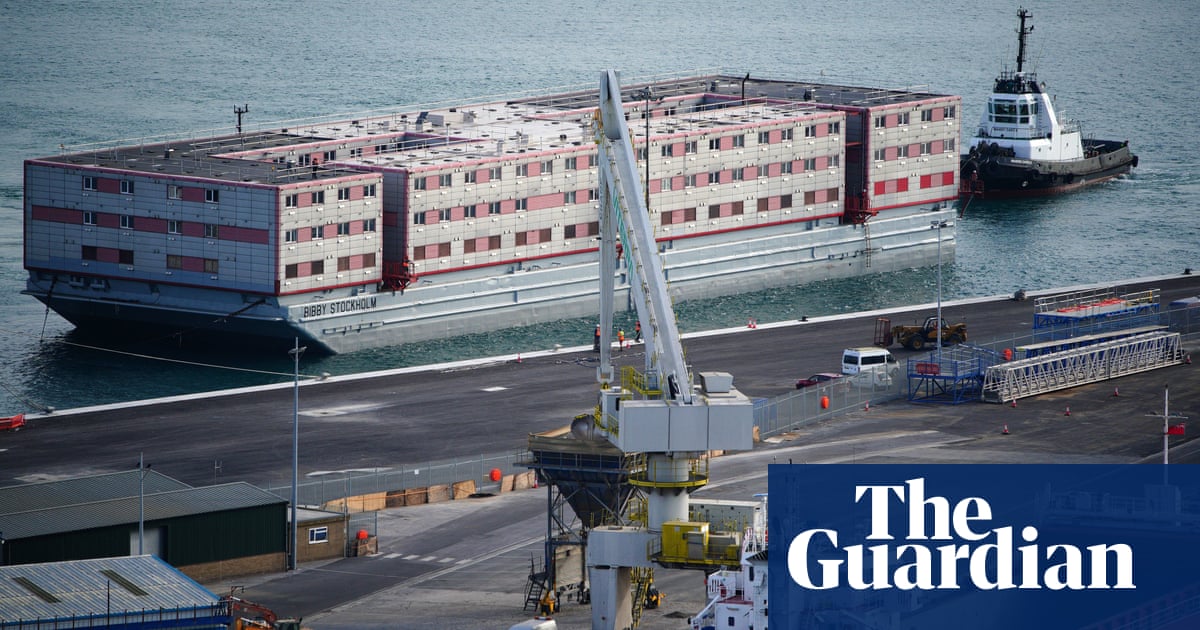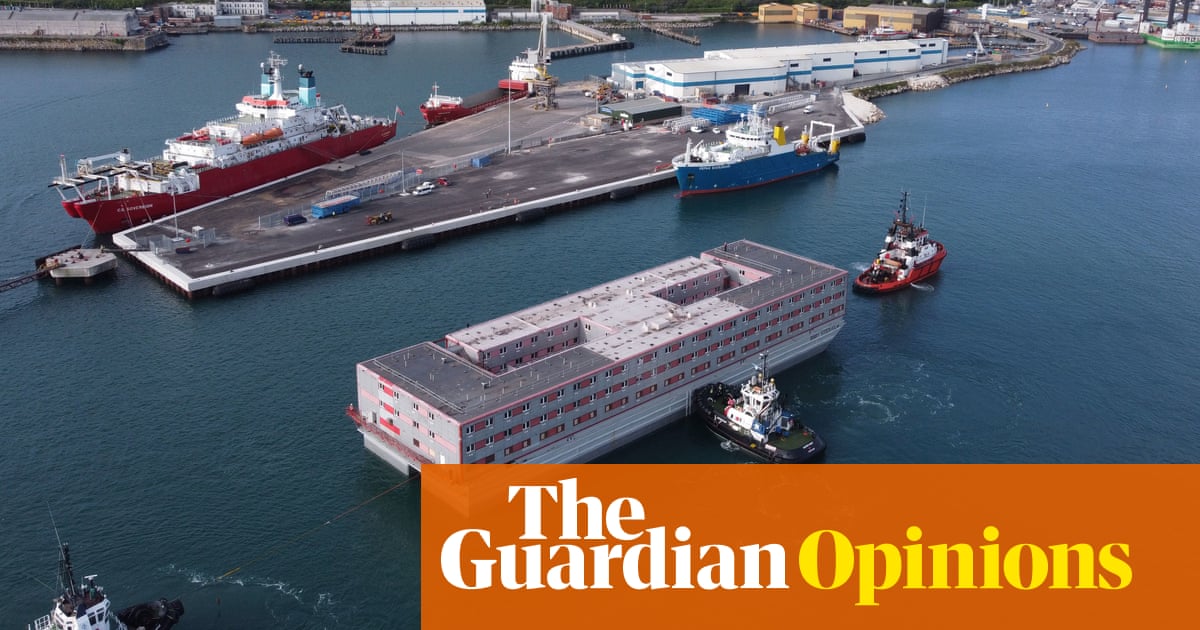
Rishi Sunak’s migration bill “will have profound consequences for people in need of international protection”, a UN body has warned, as protesters greeted the arrival of the first barge that will house asylum seekers under government plans.
The criticism followed Monday night’s crushing of the final resistance in the House of Lords to the plans, as the Conservative frontbench saw off five further changes to the bill including modern slavery protections and child detention limits.
“This bill sets a worrying precedent for dismantling asylum-related obligations that other countries, including in Europe, may be tempted to follow, with a potentially adverse effect on the international refugee and human rights protection system as a whole,” said the UN high commissioner for human rights, Volker Türk, as he urged the UK government to renew its commitment to human rights by reversing the law.
The key legislative plank of Sunak’s “stop the boats” promise fell into place before the belated arrival in Portland, Dorset, of the Bibby Stockholm on Tuesday, a vessel that will be used to house 500 asylum seekers in a trial designed to take the pressure off hotels.
Those waving placards at the gates of the port cited their opposition to the presence of asylum seekers in the area, where the local council is providing funding of £377,000 to set up activities, volunteering opportunities and English lessons.
About 50 asylum seekers will be moved on to the barge from next week as part of what the Home Office described on Tuesday as “a carefully structured plan to increase the number of individuals on board over the next few months”.
Sunak and the home secretary, Suella Braverman, hailed the end of the standoff between peers and MPs during so-called ping-pong, where legislation is batted between the Lords and Commons until agreement is reached, and which paves the way for the bill to receive royal assent.
The laws are a key part of the prime minister’s attempt to deter people from making Channel crossings. The government claims they will prevent people from claiming asylum in the UK if they arrive through unauthorised means.
The government also hopes the changes will ensure people who are detained are promptly removed, either to their home country or a third country such as Rwanda, which is the subject of a legal challenge.
However, passing of the bill was described on Tuesday as a “dark day” by charities and campaign groups, while the Labour frontbencher Jess Phillips described it as “a trafficker’s dream, a tool for their control”.
“Traffickers are today showing their slaves images of where they will end up in detention on a mega barge, or deported home right back to those who trafficked them in the first place,” an event at the Centre for Social Justice thinktank was told by Phillips, the shadow minister for domestic violence and safeguarding.
Enver Solomon, the chief executive of the Refugee Council, said: “The overall bill remains unworkable, and will lead to human misery and huge cost to the taxpayer.”
A Labour Lords source rejected the criticism from Jenny Jones of the Green party that there had been a “poor turnout” by Labour, adding: “The reality, as the Lords speaker’s committee report highlighted earlier this week, is that the Conservatives can now call upon around 100 more peers than us when it comes to crunch votes.”
The bill encountered fierce opposition in the upper chamber, which had been accused of trying to “drive a coach and horses” through the contentious plans. In turn, the government faced claims of seeking to deliver a “punishment beating” to peers for challenging the plans.
Ministers had urged the Lords to allow the bill to become law after signalling no further concessions were planned and MPs again overturned a number of revisions previously made by the upper chamber.
The Home Office minister Simon Murray said the number of small boat arrivals had “overwhelmed” the UK’s asylum system and was costing taxpayers £6m a day to provide accommodation. Lord Murray told peers: “With over 45,000 people making dangerous Channel crossings last year this is simply no longer sustainable
Downing Street defended the use of barges to house people, saying it was a cheaper alternative to placing them in hotels. But a recent report claimed it would save less than £10 a person a day.












